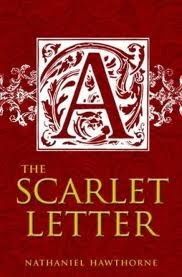Is It Worth The Read? The Scarlet Letter

Image courtesy of goodreads.com
By Caroline Morris
Every book I am assigned in school, I read. I always have, and I always will. But there was one notable exception when I was in 10th grade: The Scarlet Letter by Nathaniel Hawthorne.
My 15-year-old self gave this book everything I had. I would sit on the cold tile floor of my bathroom and tell myself I could not get up until I finished. Then I, a lifelong insomniac, would wake up dazed and sore after having fallen asleep from boredom.
I finally finished The Scarlet Letter in 2021, as it is on the reading list for my Comprehensive Exams, which are in October, and my fortitude in persevering through horrible books has increased in the six years since I first cracked the novel’s cover.
Since I have now read The Scarlet Letter cover to cover I can, with full and biased authority, tell you to never read this book. It is absolutely unreadable and not worth the time it takes.
I, as an English major who has learned to have evidence for every reading, will also provide a fair argument as to why The Scarlet Letter Shmoop is all you will ever need.
The Scarlet Letter is often seen as a masterpiece because it is a “classic moral study;” it has strong themes of sin and guilt, and it is a societal critique. All of this should be bread and butter to a book fiend like myself.
I will even give the novel this: when summarized, the plot sounds super interesting.
Hester Prynne, living in the Massachusetts Bay Colony in Puritan New England, has had a daughter out of wedlock, named Pearl. Hester staunchly refuses to reveal the father. SPOILER WARNING: The father is actually Dimmesdale, a town minister, whom Hester will not allow to reveal himself, even as she is shunned by the entire town and forced to wear a Scarlet ‘A’ on all of her clothes as a sign of adultery. To thicken the plot even further, Hester’s husband, Chillingworth, who she presumed dead, shows up at the town and becomes determined to figure out who the progenitor is and exact vengeance.
So, with important themes and an intriguing plot, where does it all go wrong? The storytelling. The novel is simply unreadably dense and tedious.
Its prologue of sorts, called “The Custom House,” sets the book in a frame narrative that, while likely significant to some critique of America, is so boring that it is next to impossible to parse. Hawthorne spends an inordinate amount of time going into the nitty gritty details of the building’s physical makeup and the social dynamics of characters who are not and never will be present or relevant. Even making my way through this one section was a battle I lost many times.
Once Hawthorne moves past the narcissism of Custom House description (he worked at one right around the time he wrote The Scarlet Letter), things do not turn around. The third sentence of the first official chapter, “The Prison Door,” conveys the brutality of reading this novel quite well.
“In accordance with this rule it may safely be assumed that the forefathers of Boston had built the first prison-house somewhere in the vicinity of Cornhill, almost as seasonably as they marked out the first burial-ground, on Isaac Johnson’s lot, and round about his grave, which subsequently became the nucleus of all the congregated sepulchers in the old churchyard of King’s Chapel.”
After putting me through the drudgery of an architecture lecture to which I did not agree, this is how Hawthorne tried to draw me in. Somehow, it did not quite work.
There is a concept in literature that has been around for a long time, since the Middle Ages with Chaucer and the Defense of Poesy by Sir Philip Sidney during the Renaissance, that deals with the nature of writing. In essence, every worthwhile piece of literature should have moral virtue that is told in an entertaining fashion. The argument is that if the writing is morally instructive but incredibly boring, no one will read it, understand it, remember it, or absorb it, but they will if it comes in a compelling story.
Sidney says it best: good writing is meant to “teach and delight.”
There is no delight in reading The Scarlet Letter.
Thus, Hawthorne’s “masterpiece” is not worth the read, especially as the language only gets more archaic and inaccessible to the average reader.
Until my petition to get the novel removed from the literary canon gets passed by the gods of English literature, The Scarlet Letter will continue to be taught in every American Literature course. So let me save you some time and trouble: here is the link to the Shmoop.






I couldn’t put my finger on the feeling I got from parsing through the awful prologue and I think your use of narcissism is spot on!